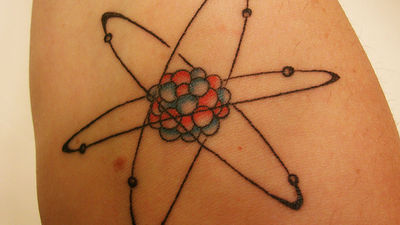Chinese researchers claim that quantum computers can already decipher RSA encryption, and experts point out that ``misleading papers'' and ``not so easy''

More than 20 researchers from 7 different research institutes in China have jointly published an academic paper . This paper claimed that the latest factorization algorithm announced in 2021 could be combined with the quantum approximate optimization algorithm (QAOA) to crack RSA encryption using a quantum computer. However, researchers are skeptical about this paper.
Chinese researchers' claimed quantum encryption crack looks unlikely • The Register
https://www.theregister.com/2023/01/07/chinese_researchers_claimed_quantum_encryption/
Chinese scientists' claims for new quantum code-breaking algorithm raise eyebrows in the US | South China Morning Post
https://www.scmp.com/news/china/science/article/3206384/chinese-scientists-claims-new-quantum-code-breaking-algorithm-raise-eyebrows-us
Quantum Decryption Breakthrough? Not So Fast
https://www.darkreading.com/vulnerabilities-threats/quantum-decryption-breakthrough-not-so-fast
Since quantum computers became a hot topic in the IT industry, it has long been feared that quantum computers will break through the RSA encryption that supports the encryption technology of the Internet world. I came. In fact, in 2019, a paper (PDF file) was published claiming that ``If you have a 2048-bit quantum bit, you can use a quantum computer to break through the RSA encryption in about 8 hours.'' The National Security Agency (NSA) launched a project in 2015 to develop a quantum-safe cryptography algorithm. In 2022, the National Institute of Standards and Technology (NIST) continues to develop quantum-safe encryption algorithms that are difficult to decipher even with quantum computers.
The National Institute of Standards and Technology adopts four encryption algorithms to prepare for quantum computer attacks - GIGAZINE

No one knew when the day would come when it would be possible to break through RSA encryption using a quantum computer, but on December 23, 2022, a team of Chinese researchers announced on the open access preprint server arXiv , 'Factoring published a paper titled 'integers with sublinear resources on a superconducting quantum processor'. This paper combines classical lattice reduction and QAOA to create an algorithm that can perform integer factorization at high speed. The paper claims that by running this algorithm on a quantum computer, it will be possible to break RSA encryption.
The research team claims that if there is a quantum computer with 372 qubits, it will be possible to break through the RSA encryption, and IBM's already announced quantum processor `` Osprey '' has 433 qubits. As a result, it was received as if ``the existing quantum computer can break through the RSA encryption''.
IBM Quantum System Two-YouTube
Bruce Schneier , an American cryptography and information security researcher, said, ``The paper published by the Chinese research group may be incorrect, but it is not clearly wrong. It's a problem that should be addressed,' he said on his blog, and although he avoided mentioning the right or wrong of the paper, he noted that the paper was worthy of attention.
The day after Mr. Schneier posted a blog, the economic media Financial Times picked up a paper with the title `` Chinese researchers claim to have discovered a way to crack encryption using quantum computers.'' has received even more attention.
'In 1997 or 1998, I had dinner with a friend who was one of the early pioneers of quantum computing,' energy analyst John Kemp told the Financial Times. I predicted that a functioning quantum computer would appear within a year, and I can see that I was right. He pointed out that it will take a long time to get there.
In 1997/98, I had dinner with a friend who was one of the early pioneers in quantum computing. He predicted there would be functioning quantum computers within 20 years (which turned out correct) but would take much longer to be able to do anything useful: https://t.co/cegWKupFxd
— John Kemp (@JKempEnergy) January 10, 2023
Another researcher, Lukasz Olejnik, said he was 'impressed' by a Chinese researcher's quantum computer algorithm that significantly speeded up integer prime factorization, but said he needed to run the algorithm. He warns that the quantum computer that will become is not yet at the practical stage.
Finally some sensible questions asked in the mainstream press , @FT , about quantum computer hype, which already overtake some policymaker circles in Brussels, not necessarily based on factual insight. t.co/CiNgoVctw4 https://t.co/dAuU9BerpJ pic.twitter.com/NzmqyKtV6e
— Lukasz Olejnik (@LukaszOlejnik@Mastodon.Social) (@lukOlejnik) January 10, 2023
In addition, Scott Aaronson, director of the Quantum Information Center at the University of Texas at Austin, directly refutes the paper by Chinese researchers, saying ' No, it's not.' Aaronson points out that even with QAOA, it is 'unproven' that algorithms work faster on quantum computers than on conventional computers.
In addition, the paper compares the speed of integer factorization of the method using QAOA with the classic 'Schnorr's algorithm' using an existing computer, but Mr. Aaronson said, 'On a notebook PC I don't think a comparison of just running a classic algorithm against a new algorithm is sufficient to prove the usefulness of that approach.' In addition, ``Overall, this paper is one of the most actively misleading papers related to quantum computing that I have seen in the last 25 years,'' he said. It is criticized for being inviting.
Cybersecurity company Kaspersky said on its official blog , ``The theory has long existed that quantum computers factorize huge integers at very high speeds and decrypt many asymmetric encryptions, including RSA encryption.'' ``So far By the way, all experts agree that a quantum computer large enough to crack the RSA encryption will probably be built within a few decades, ''he said, and the quantum computer is a cryptosystem that includes RSA encryption. The possibility of breaking through has been discussed for a long time, and it is argued that it is not too late.
Related Posts:
in Software, Posted by logu_ii







